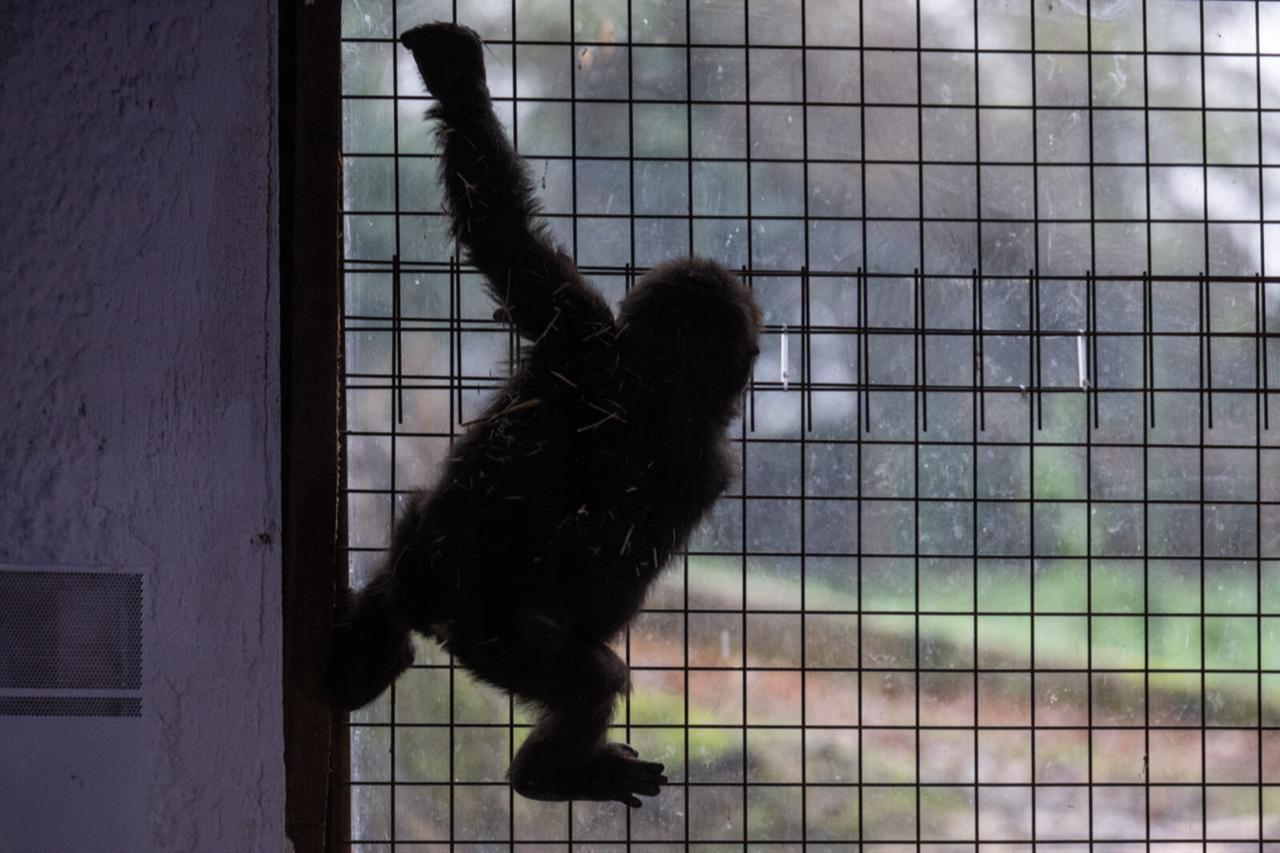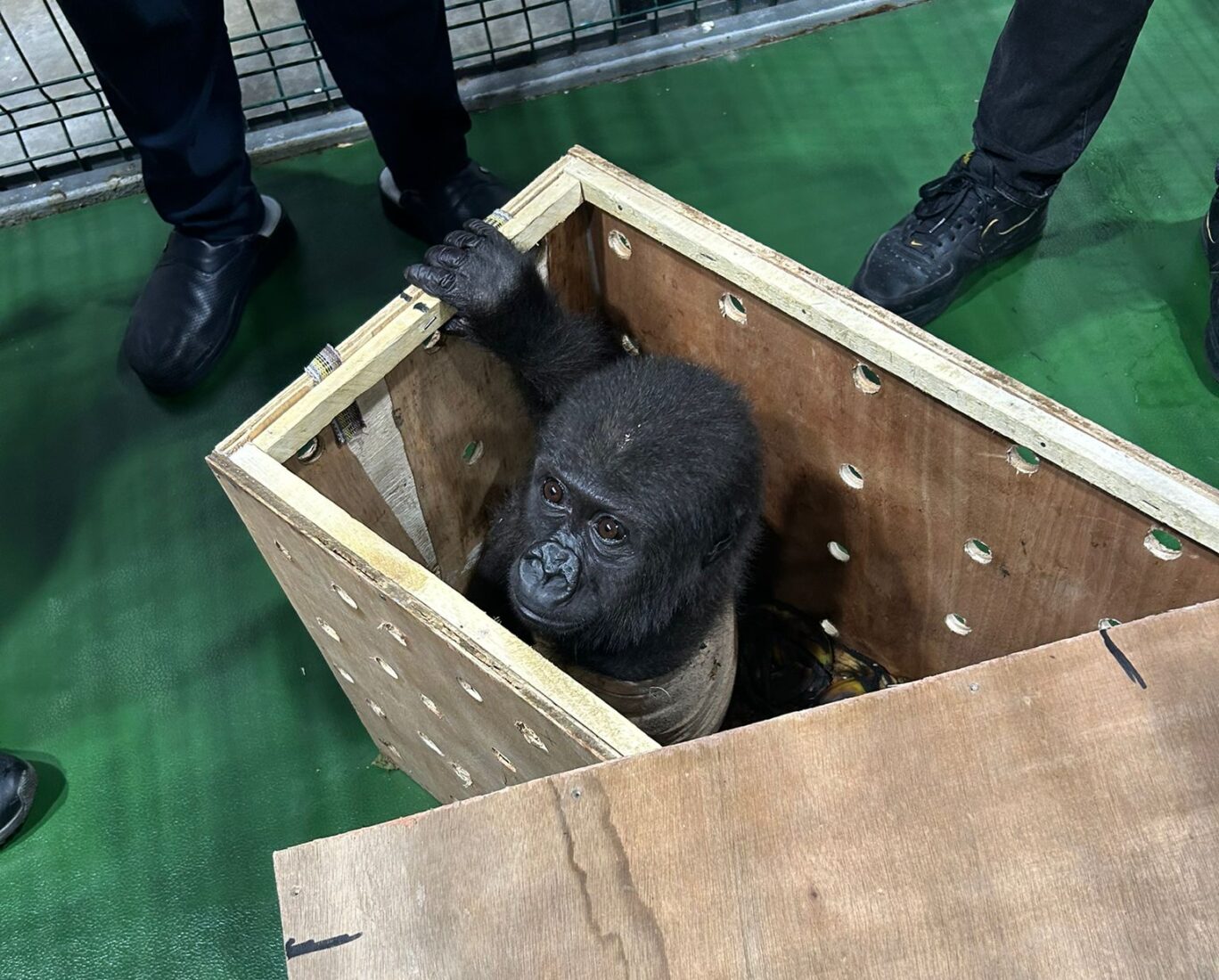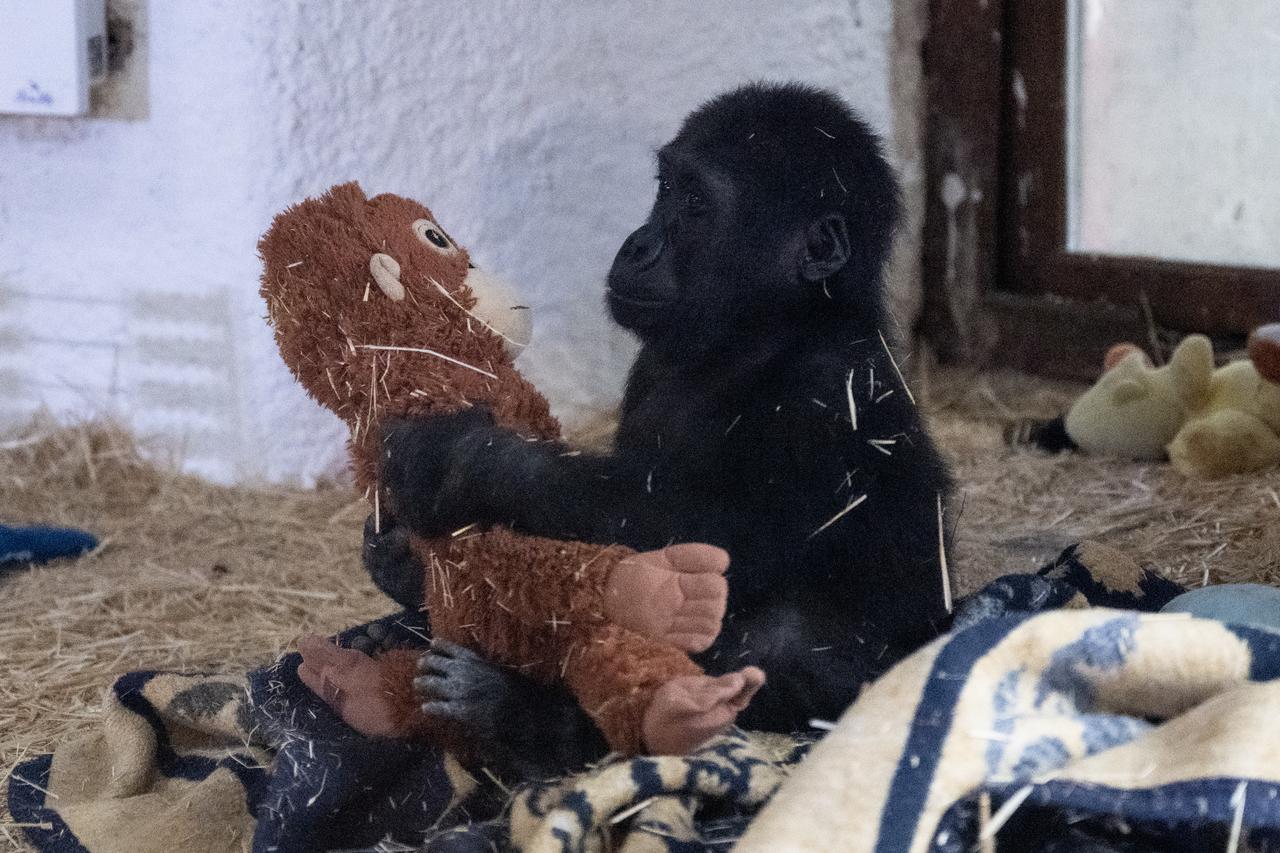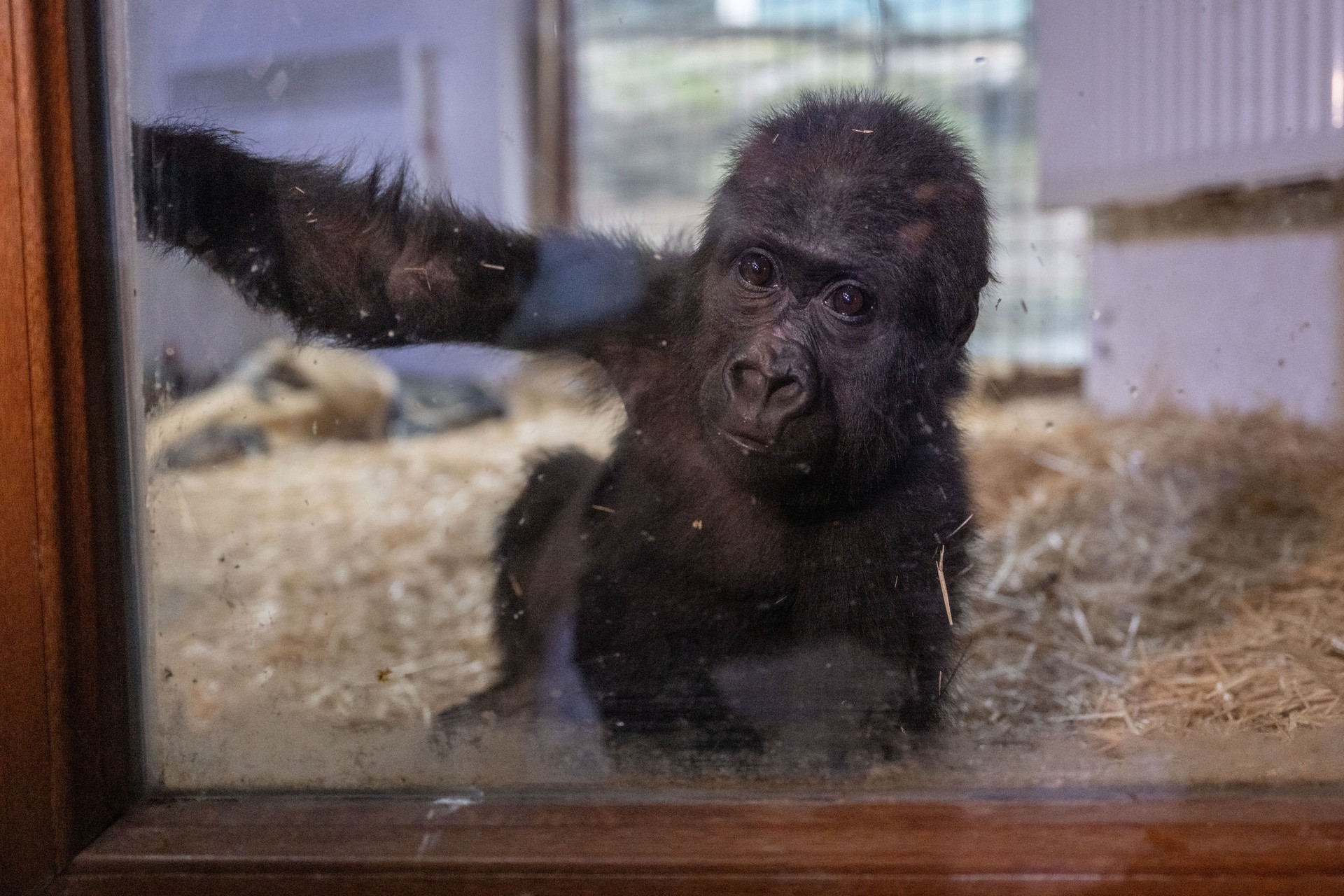
A baby gorilla named Zeytin, rescued from wildlife traffickers at Istanbul Airport seven months ago, remains in Türkiye as authorities work to return her to Nigeria for proper rehabilitation with other gorillas.
The young gorilla was discovered on Dec. 22, 2024, hidden in a cage within a small box on a flight from Nigeria to Thailand.
Customs officers seized the critically endangered "gorilla gorilla" and placed her under the protection of Türkiye's Ministry of Agriculture and Forestry.
After seven months, experts warn that Zeytin's continued isolation in Türkiye could negatively impact her development, as the country lacks specialized primate rehabilitation facilities.

Following Zeytin's rescue, Nigerian government officials and authorities from the Convention on International Trade in Endangered Species of Wild Fauna and Flora (CITES), to which both countries are parties, became involved in the repatriation process.
Experts interviewed by BBC Turkish noted that CITES contains special provisions regarding the return of seized live animals to their countries of origin or to an appropriate conservation center.
Jane Goodall Institute Primate Expert Aslihan Niksarli told BBC Turkish that they observed Türkiye and Nigeria are determined to act in accordance with these obligations as CITES parties.
The Pan African Sanctuary Alliance (PASA), responding to BBC Turkish's questions, said the return of seized illegal animals between CITES parties occurs regularly. They cited Türkiye's return of more than 100 seized African gray parrots to the Democratic Republic of Congo last year as an example.
PASA confirmed that the Nigerian government has prepared the necessary documents and arrangements to receive Zeytin, with her return to Nigeria expected in March 2025.

Jane Goodall Institute primate expert Aslihan Niksarli emphasized the importance of gorillas living with their own species for both social and physical development.
"A gorilla, or generally a primate, should never live alone unless it carries an infectious disease or exhibits antisocial behaviors," Niksarli said.
"Gorillas are social animals with strong bonds within groups. For Zeytin to live with other gorillas of her own species is of great importance for both her social and physical development," she added.
PASA stated that during rehabilitation, animals must be in conservation centers resembling natural habitats to maintain or regain survival skills and instincts.
According to statements from the Provincial Directorate of Agriculture, Zeytin is currently housed at Polonezkoy Zoo in Istanbul.
"She is fed appropriately for her age, and her mental and physical development is supported with activities. She has a specially assigned caretaker who constantly looks after her," Niksarli said.
Zeytin cannot receive visitors, which experts say is crucial for health reasons.
"Young gorillas' immune systems are not yet fully developed, so they are very sensitive to diseases that can be transmitted from humans. Therefore, the visitation ban is extremely critical for both Zeytin's health and long-term well-being," Niksarli explained.
Gadsby and Jenkins noted that photographs suggest Zeytin is about one to one-and-a-half years old, while gorillas care for their young until age four. They highlighted the trauma Zeytin experienced:
"Remember that her mother was shot by hunters, and Zeytin survived because her mother turned her back to the hunters to protect her. She was left under her dead mother, was kidnapped and transported from place to place before being rescued in Istanbul."
"What she needs is to be with other gorillas and, if possible, return to wildlife with a new gorilla family. This is a scenario that can never be realized in Türkiye," they said.

Zeytin is planned to be sent to Drill Ranch, a PASA member facility in Nigeria with decades of experience in rescued animal rehabilitation. The facility already houses Bili, a three-year-old female gorilla who was also rescued.
Experts indicate there is no facility in Nigeria better equipped to house, care for, and rehabilitate Zeytin than Drill Ranch.
Pandrillus organization managers Liza Gadsby and Peter Jenkins, whose group includes Drill Ranch, emphasized the importance of primates living with their own species.
"The most important thing for any primate is to live with their own kind," they said, stressing the significance of Bili and Zeytin being together.
Ajogwu Felix Ejeh from CITES Nigeria, under the Nigerian Ministry of Environment, assured that Zeytin is in good condition and that both governments are working carefully on her return to Nigeria.
Experts from both Türkiye and Nigeria believe that both the ministry and CITES Türkiye are working to ensure Zeytin is returned safely under appropriate conditions, fulfilling their wildlife protection commitment.
Wildlife trafficking is a crime frequently encountered worldwide, and experts say there is an urgent need for stronger international intervention against it.